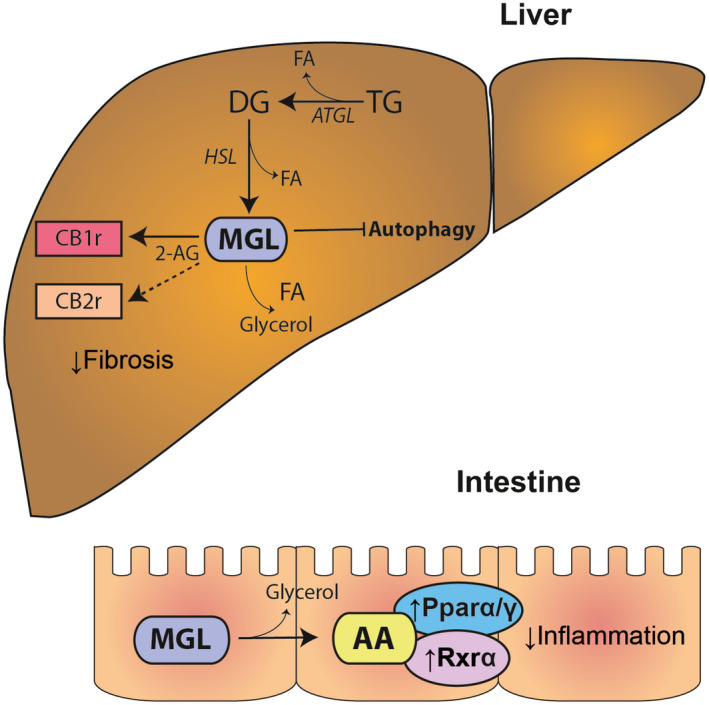FIG. 3.

MGL at the crossroads between the cannabinoid and lipid signaling pathways. MGL is the major enzyme degrading the endogenous cannabinoid ligand 2‐AG, which in turn can bind either CB1r or CB2r, connected with fibrosis development. In the liver, MGL inhibition was shown to decrease autophagy of immune cells, resulting in decreased fibrosis development. MGL hydrolyzes 2‐AG into AA, a precursor of prostaglandin synthesis and a ligand of several NRs (PPARα, PPARγ, and RXR). In the intestine, lack of MGL was shown to be protective, as it reduces local inflammation. Abbreviations: 2‐AG, 2‐arachidonoylglycerol; AA, arachidonic acid; CB1r, cannabinoid receptor 1; CB2r, cannabinoid receptor 2; FA, fatty acid; HSL, hormone‐sensitive lipase; MGL, monoacylglycerol lipase; NR, nuclear receptor; PPAR, peroxisome proliferator–activated receptor; RXR, retinoid X receptor.
